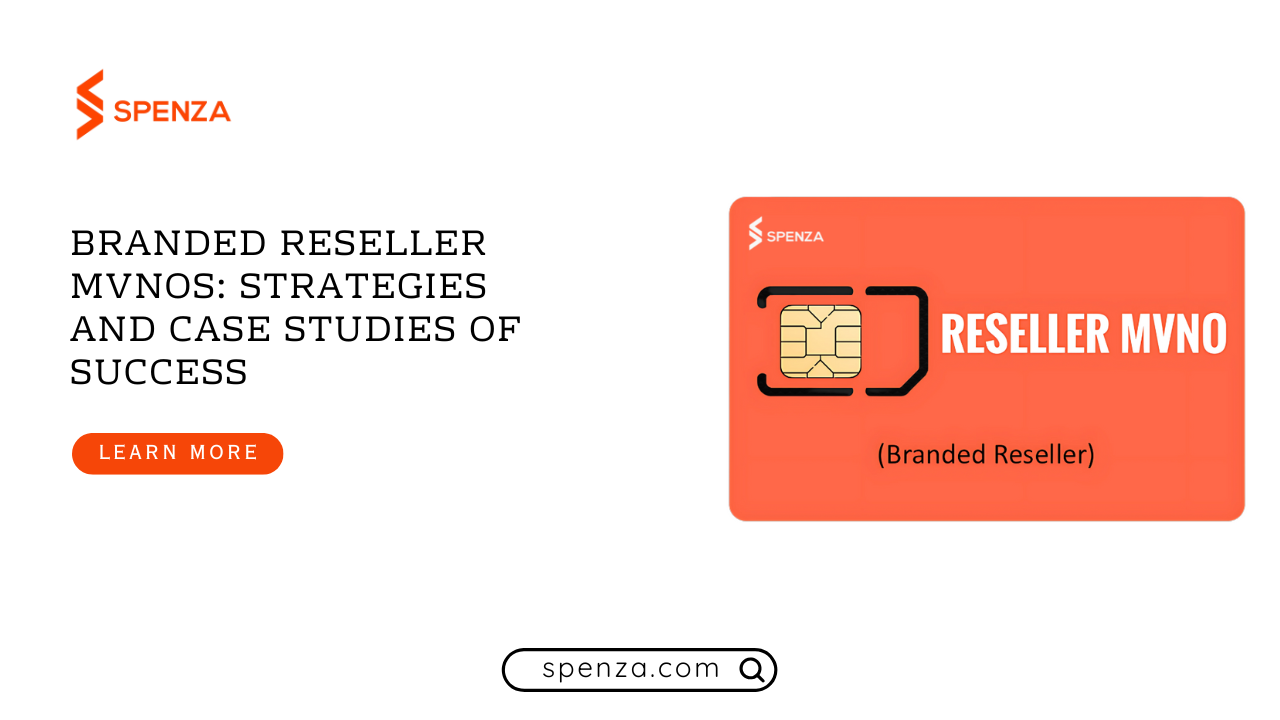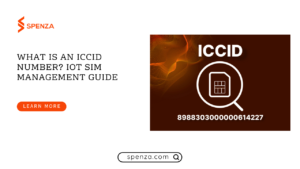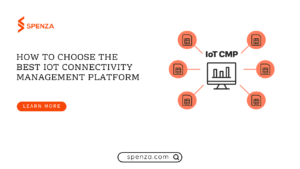Table of Contents
- Overview
- What Would You Get by the End of the Article?
- Branded Reseller MVNOs: A Deep Dive
- Strategies for Success
- Example of Branded Resellers
- Why Choose Spenza for Your Branded Reseller MVNO?
- Conclusion
- FAQs
Overview
Branded MVNOs are quickly receiving attention as a way for companies to seek avenues for growth within an ecosystem that would ordinarily demand heavy investments and time in establishing network infrastructure. Branded resellers can customize telecom solutions based on their marketing expertise and customer relationships while utilizing a mobile network operator’s existing (MNO) infrastructure. This blog explores branded MVNOs, highlights successful strategies, reviews regulatory parameters, and provides examples.
What Would You Get by the End of the Article?
- A clear understanding of what a branded reseller is
- Insights into MVNO resale models
- Key factors in the MVNO regulatory landscape
- Actionable strategies for achieving success as a branded MVNO
- Real-life examples of branded resellers
- A look at how Spenza’s connectivity solutions support new and existing MVNOs
Branded Reseller MVNOs: A Deep Dive
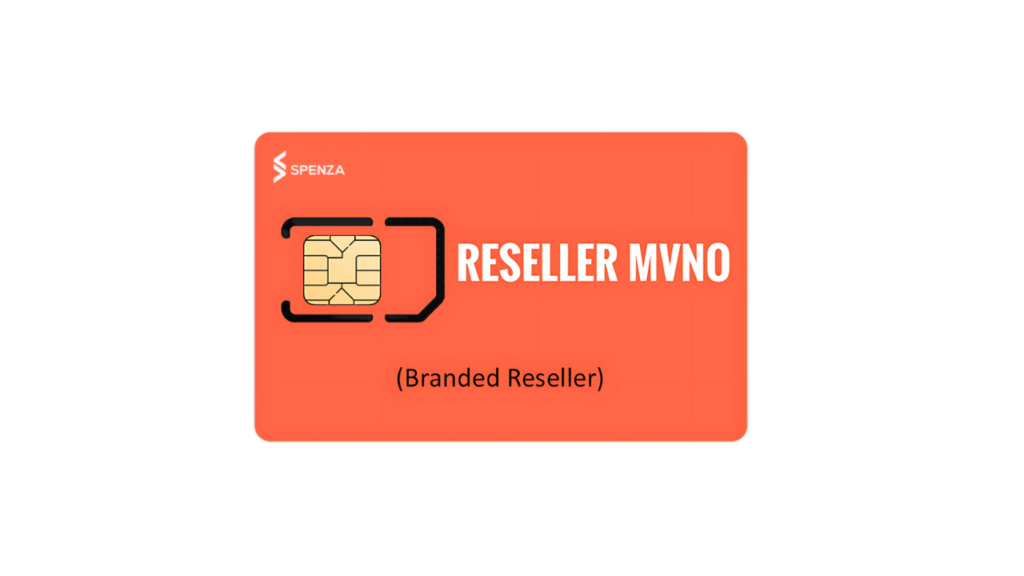
What Is a Branded Reseller?
It is a type of mobile virtual network operator focusing primarily on brand recognition, marketing, sales, and distribution while relying on a host network operator for technical infrastructure. In most cases, they bring a strong brand identity, a large customer base, or specialized distribution channels to the partnership with the MNO. The central premise is simple: let the MNO handle the complexities of network management (such as SIM provisioning and call routing). At the same time, they capitalize on consumer-facing strengths like loyalty programs, promotional campaigns, and targeted service plans.
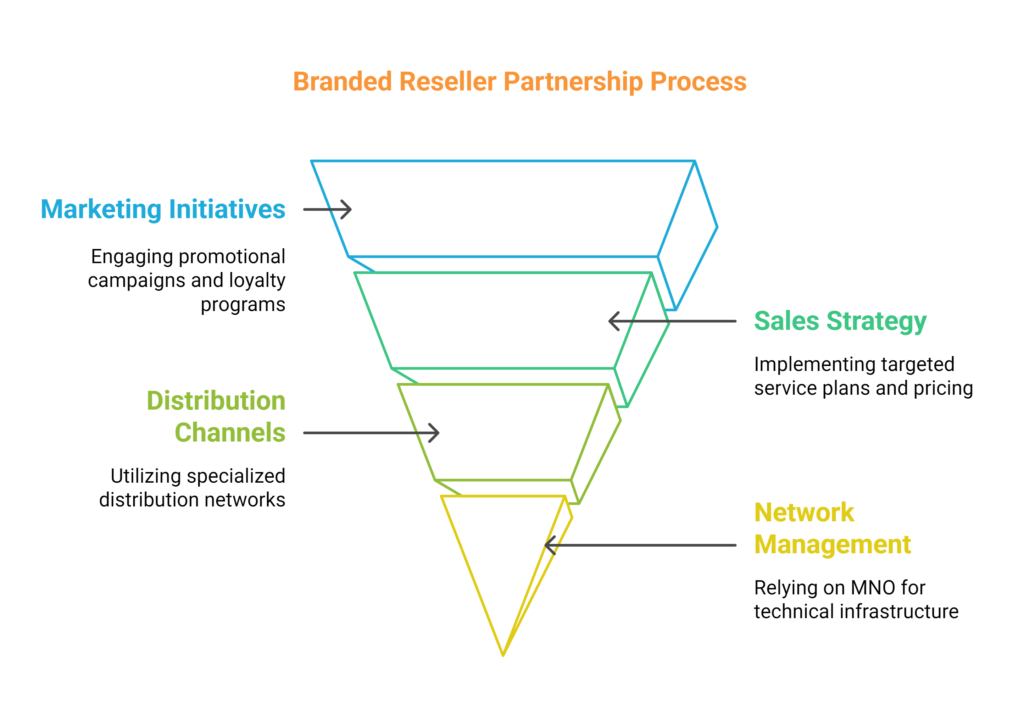
Within this setup, the branded MVNO would typically exert low control over network specifications or customer data handling. However, within agreed-upon parameters, the MVNO may have the freedom to set unique pricing, nurture customer relationships, and provide a unique user experience. This setup enabled companies to expand their outreach without installing a mobile network, which is a pretty capital-intensive activity.
MVNO Resale Models
In the broader MVNO resale ecosystem, types of MVNO can tailor specific business requirements and regulatory contexts. Common types include :
1. Branded Reseller MVNO: Operates under its own brand or a co-branding approach but leaves the infrastructure, SIM management, and billing processes to the MNO.
2. Thin MVNO: Manages some elements such as billing or additional value-added services but still relies on the MNO’s core network.
3. Light MVNO: Gains more autonomy over operations, such as hosting certain network elements, while still leasing core connectivity from the MNO.
4. Full MVNO: Controls most network functionalities except for the radio access network.
Among these, the branded reseller model falls toward the lower end of technical complexity, meaning significantly reduced setup costs but also lower control over network-specific components. Many find this trade-off worthwhile because it speeds up time to market and allows the MVNO to pivot quickly based on consumer demand.
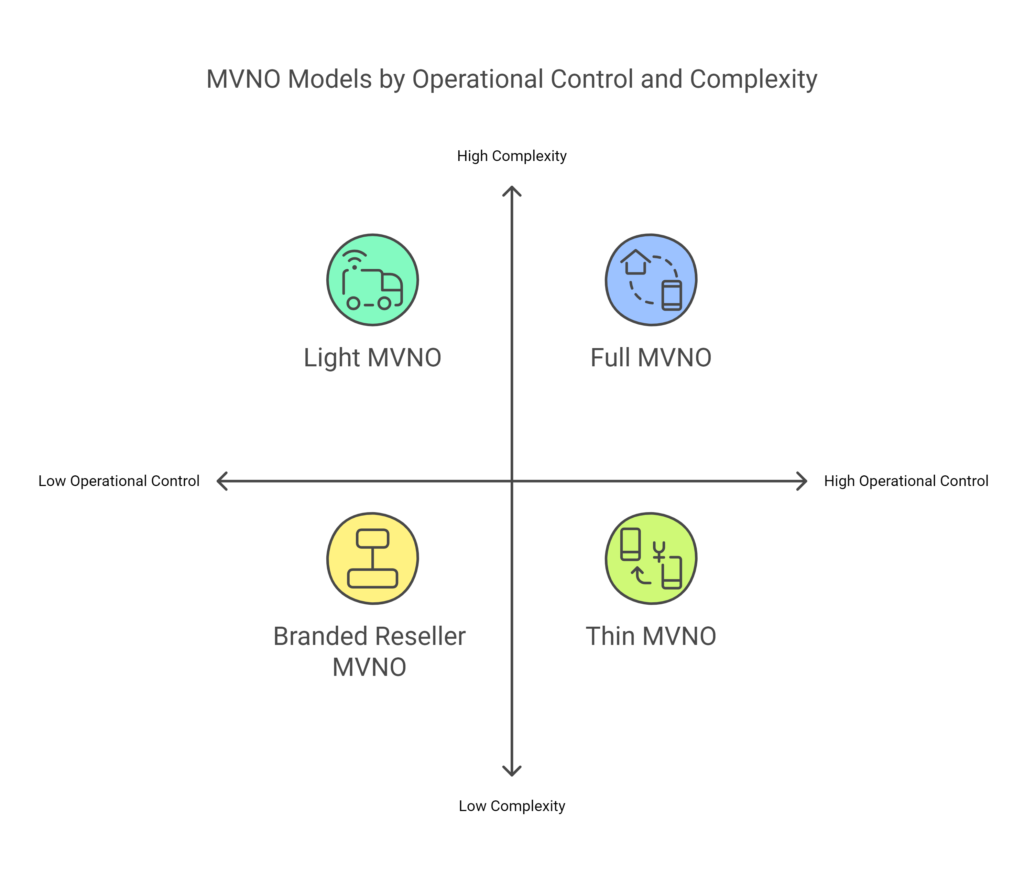
MVNO Regulatory Landscape
Branded reseller MVNOs must follow the same main rules as full mobile network operators, but they often have fewer direct license requirements. Regulations typically focus on the following areas:
- Licensing: Depending on the country, MVNOs may need a light operator license or operate under the host’s license.
- Consumer Protection: Branded MVNOs must follow consumer protection laws, like transparent billing and data privacy rules.
- Interconnection and Roaming: In some locations, MVNOs must follow rules about how roaming and interconnect charges are handled.
- Number Portability: Regulations often require MVNOs to support mobile number portability to keep competition fair.
Understanding the MVNO regulatory landscape early is important. Not every region has the same policies, so a branded MVNO might have an easy entry in one country but face stricter requirements in another. Compliance teams, legal advisors, or consultant partners are often important in this process. They help branded MVNOs follow local laws to avoid penalties or operational problems.
Strategies for Success
Launching a branded reseller MVNO is a blend of careful planning, strategic partnerships, and innovative marketing. Below are key strategies that can guide you toward success:
1. Differentiate Through Brand Positioning
Branding is essential for any reseller MVNO. Promoting a strong brand identity, distinct product packaging, and unique customer engagement initiatives will set you apart from generic telecom solutions. Align your packages with the lifestyle or professional needs of your target audience—whether they be students, frequent travelers, or IoT device owners.
2. Leverage Existing Distribution Channels
One advantage they often have is access to unique distribution channels—physical retail stores, established e-commerce platforms, or strong online communities. Businesses can leverage these channels through creative promotions that bundle mobile services with other products or offer loyalty incentives.
3. Optimize Costs and Margin
Because the MNO handles most of the infrastructure costs, the branded reseller can focus on marketing efficiency and operational leanness. This can lead to competitive pricing if done wisely. Keep in mind that while you have some control over final tariffs, the host operator will often influence the final price points.
4. Partner Wisely
Carefully check potential MNOs for their coverage quality, technology, and how they share revenue. Look for a partner who is open to a flexible and clear agreement. This partner should give you the freedom to innovate while keeping costs low.
5. Remain Agile
Telecom markets shift quickly. By monitoring consumer behavior, data usage patterns, and market trends, you can adapt your offerings. When your competitor launches a new plan or a new technology emerges, your brand’s agility can be a major asset.
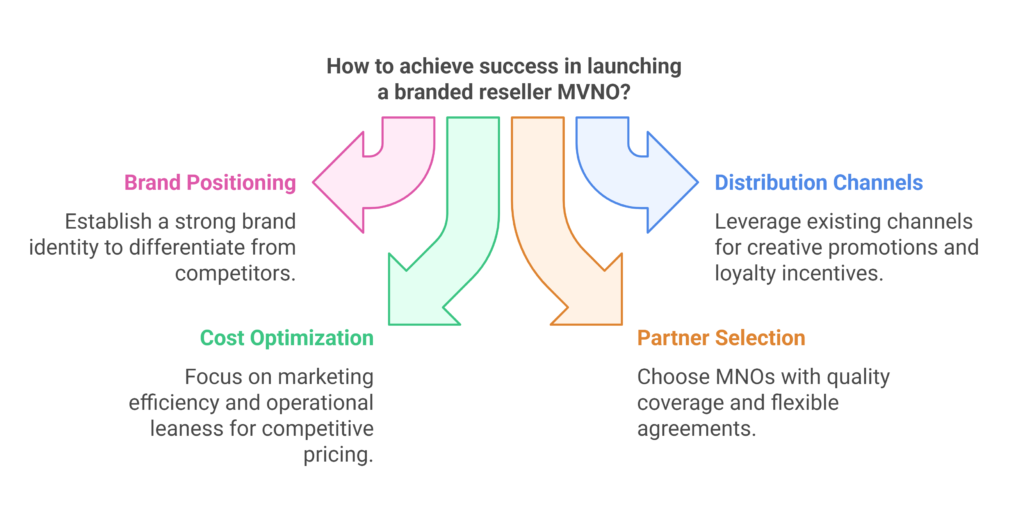
Examples of Branded Resellers
Branded resellers are companies that offer mobile services under their own brand but use the network infrastructure of established mobile network operators (MNOs). Here are some examples:
- TracFone Wireless: One of the largest MVNOs in the US, it operates under the NET10 Wireless and Straight Talk brands. It buys network capacity from major operators such as AT&T, Verizon, and T-Mobile.
- Virgin Mobile: Virgin Mobile operates in several countries, including the US and UK. It uses the networks of other operators, such as Sprint (now T-Mobile) in the US and EE in the UK, to provide services under the Virgin Mobile brand.
- Google Fi: Google Fi is an MVNO owned by Google. It operates on the network of multiple carriers like T-Mobile, Sprint, and U.S. Cellular in the USA.
Why Choose Spenza for Your Branded Reseller MVNO?
When launching or optimizing a branded reseller MVNO, having the right partner can make all the difference. That’s where Spenza comes in. Our platform makes it easy to integrate MVNO offerings into your existing products and services quickly and efficiently. We handle cross-operator integrations, simplify SIM management, and provide a robust Cellular connectivity API layer, allowing you to focus on strategic growth rather than backend issues.
With Spenza, you can:
- Launch quickly across multiple markets.
- Customize your MVNO plans for different segments without heavy investment.
- Access a global network of MNOs to find the perfect partner for your brand vision.
Conclusion
Branded MVNOs offer a powerful way to tap into new opportunities in the competitive telecom market. By combining a strong brand identity with reliable network infrastructure from a host operator, they can thrive. This model is ideal for organizations with strong marketing skills, established customer bases, or unique distribution channels. While the MNO handles core operations like network maintenance, the branded MVNO can focus on generating revenue and enhancing the customer experience. This division of responsibilities allows for efficient and effective growth in the telecom sector.
FAQs
It is a type of MVNO where a company sells mobile services under its brand but relies on an MNO for the network infrastructure.
Regulatory constraints define licensing, consumer protection, and other obligations. Ignoring them can result in fines or operational setbacks.
Spenza offers a streamlined platform and pre-configured operator integrations that significantly reduce setup time for new MVNOs.
Spenza’s comprehensive connectivity and subscription platform centralizes essential operations, from subscription lifecycle management to billing.
Spenza serves as an all-in-one platform that enables brands to launch or expand branded MVNO services. We handle the technical complexities, helping you bring innovative telecom solutions to the market swiftly.
Ready to move forward with your own branded reseller MVNO? Contact Spenza today to learn how we can help turn your brand vision into a reality.

